Former Longhorn, NFL star Will Matthews on Black Lives Matter, sports’ role in invoking change
During his career, Matthews played 48 times for Texas Longhorns before being drafted by the Detroit Lions in 2005. He will be one of a range of speakers and performers taking part in the 2020 HEARD Event.
Will Matthews wants to address the race imbalance in America. As a football player, Matthews played for the University of Texas at Austin before being drafted by the Detroit Lions.
We sat down for a chat before the 2020 HEARD Event, a virtual event streaming live from central Texas geared towards raising money and awareness for organizations supporting racial equality. Matthews will be part of a group of musicians and decorated athletes performing and speaking at the event.
Event organizers hope to draw on the history music and sport have in bringing people of different backgrounds together. The HEARD Event’s website states that, despite our current climate of doubt and uncertainty, this initiative will “embody how teamwork, friendship, and a collective empathy for one another can unite our communities and help us begin to understand one another.”
Matthews is the perfect figure to represent these values. “One of the great things about sport is that it’s so diverse,” he says. However, he tempers this with the assertion that it is advantageous to look a certain way.
“Even among social groups, there’s a reinforcement of racial stereotypes,” Matthews says. “‘Oh you’re fast’ or ‘you have athletic ability’ because of the color of your skin.”
The ex-Longhorn stresses that there are a variety of racial stereotypes that underpin the life of an athlete. For Black athletes, the playing field is far from being level.
“You’re either smart because of this color or it’s, ‘he’s really fast for a white guy,’ which in turn reestablishes that there is a difference between us and it’s difficult to escape that.”
It is not a new concept; the association of certain traits with individuals because of their skin color has always been embedded in sporting culture. When asked if he feels that black athletes are forced to work harder than their white counterparts in order to achieve similar levels of success, Matthews says that the problem is complex.
“Until recently, the way [football] players were categorized was, ‘Black quarterback: he’s so fast, so agile, such an athlete.’ For a white quarterback people would say ‘he is so smart, such a great leader’ and ‘he works hard.’ I do think there is more awareness of that recently,” Matthews says.
Is there also a race-based favoritism at play when it comes to employment? Matthews certainly thinks so.
“When people are hiring, they’re hiring people who look like them,” Matthews says. “That is pretty consistent across the board: they will hire a client’s son who’s a mediocre student but when it comes to a person of color, they are looking for an absolute perfect fit.” The imbalance, then, exists not only in sport but in society too.
“Socially, inside of communities, being an exceptional athlete, businessperson, anything, people know that the Black person has had to face things that maybe other people from different races have not had to face. They have to endure, to fight more and they have to continually prove their worth because of the stigma against the color of their skin.”
Within the sporting bubble, the stigma is especially related to the game Matthews excelled in.
Matthews says that a prime example of such racial bias can also be seen with the lack of Black representation in the sport, particularly when it comes to coaches. An imbalance is then created when a game dominated by Black athletes on the field lacks similar representation on the sidelines. The issue plays out across communities, and Matthews’ sentiment echoes that of Chris Valentine, co-founder of organizers 3E Events, who has said of the initiative that “to truly invoke change, it is important to stop and listen to different experiences on race to understand people’s perspective on life.”
Greater representation is vital.
“When black athletes and other people of color see coaches and owners that look like them, there is a heightened sense of hope,” Matthews explains.
“Where there’s a lack of representation there has got to be allyship,” Matthews says, who uses Golden State Warriors’ head coach Steve Kerr as an example.
“Some of the things [Kerr] has been vocal [about] and talking about are absolutely incredible. I want to see more people of color who are not coaches stepping up and saying ‘hey, you know, we need to make a change within our organization to not only reflect our words but to reflect our actions.’”
Change has been afoot in 2020. The Black Lives Matter movement gathered pace worldwide in the wake of George Floyd’s murder in May. Football players have long been leading figures in the fight for social justice — with Colin Kaepernick’s career on the field initially cast into doubt and subsequently taken over by his activism in the face of adversity — and Matthews emphasizes the vital role sports can continue to play in bringing about much needed change.
“Since the early 1900s, sports have been an avenue for and a precursor to societal change…there is a huge platform for athletes and so people are looking to them. It has added a lot of fuel, complexity and texture to the Black Lives Matter movement,” Matthews says.
Over the course of this year, with the reignition of the social justice movement reaching an apex in terms of widespread coverage, discussion has also risen over interpretation of the message.
“The phrase Black Lives Matter is crazy. It’s like, I’m not asking you to say that they are better or more important, I’m just saying that they need to be recognized. That sheer fact has caused millions of Americans to speak out,” Matthews says.
Matthews emphasizes that athlete protests (and those in wider society) have primarily been peaceful. In the case of Kaepernick — whose long-running position in the spotlight began when he refused to stand for the national anthem before a preseason game in August 2016 — speaking out against racial injustice has been politicized as an affront to the flag of the United States.
“Colin was simply saying, ‘there are things happening to my community that you don’t understand, so will you just listen?’” Matthews says.
The former running back spent the majority of his playing career with the Lions, and appeared 48 times for the University of Texas.
Matthews now engages in public speaking, discussing topics such as mental health and business strategy. His life goal is to leave the world a slightly better place than he found it, and he speaks candidly about the mental relationship between oneself and one’s life. Going forward, he will continue having crucial conversations about how society can positively change its outlook. He says it’s something that will require time, but the time to start constructing a different future is now.
“I believe that if we can make relationships, listen and be willing to change, we can really do something special for the next generation.”
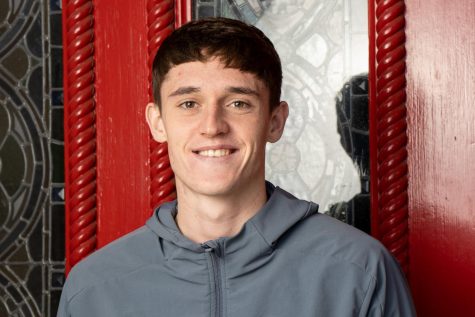
Hi! I am George Murray, one of the Sports Editors at Hilltop Views. I am an english literature major and journalism & digital media minor graduating...


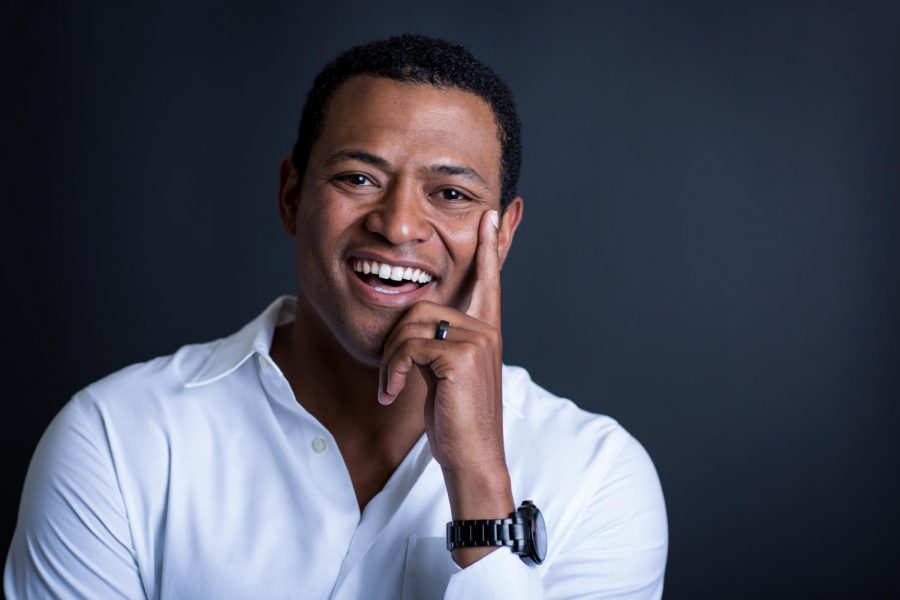

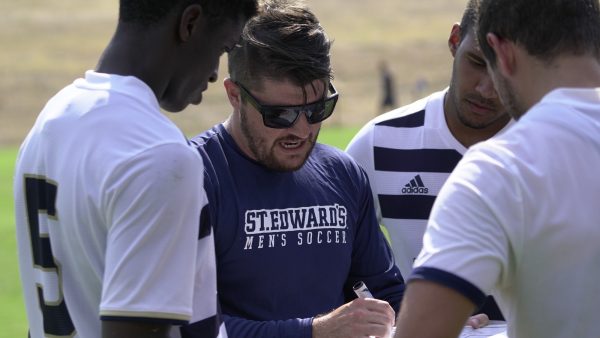

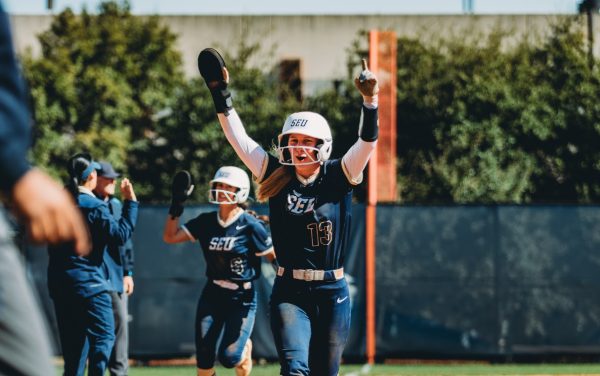
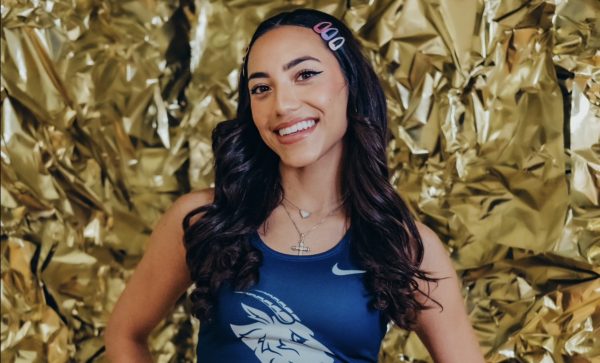
john s beach • Sep 14, 2021 at 1:43 pm
Will, I was a pleasure to meet with you today. I enjoyed reading your thoughts here. You will go far in life! Keep up the good work!
Regards, John & Cynthia
Kennedy • Oct 21, 2020 at 1:27 pm
Love this!